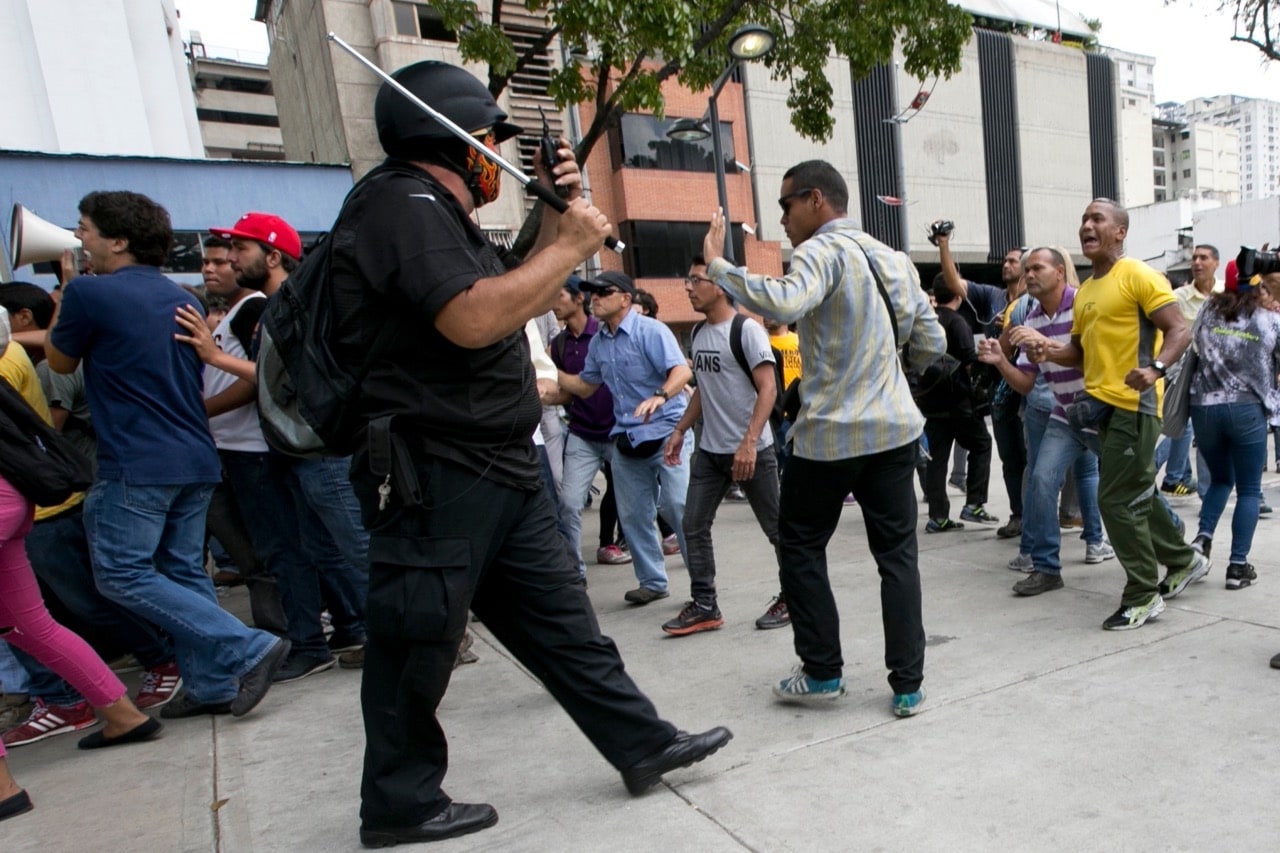A roundup of key free expression news in the Americas, based on IFEX member reports.
May is a special month for those of us defending freedom of expression around the world. It is marked by World Press Freedom Day, celebrated on 3 May.
Unfortunately, however, the word “celebrate” may not be the most appropriate for the occasion, since the state of this human right in the Americas and in the world is currently quite compromised: murders of journalists and social activists, attacks on the media, imprisonment and judicial persecution in several parts of the continent are just some examples of the most grave situations.
The 2017 edition of the Reporters without Borders (RSF) World Press Freedom Index shows an increase in the number of countries where the state of freedom of expression is quite concerning and reveals the magnitude of the dangers affecting the freedom to report on events throughout the world.
The same report argues that violations of freedom of the press are no longer a characteristic exclusive to authoritarian regimes, but also apply to democracies, making this acquired right increasingly more fragile.
IFEX members also summarised their year, and their perspectives do not stray too far from this gloomy picture.
In Venezuela, the state of free journalism is becoming increasingly more compromised, adding to the growing wave of repression at the hands of Nicolás Maduro’s government.
IPYS Venezuela presented an unnerving report regarding the country’s current state of freedom of expression. In addition to repression during coverage of demonstrations, the organisation stated that at least 17 Venezuelan and foreign reporters have been arrested since the wave of protests began in March.
Espacio Público, along with dozens of organisations, issued a statement rejecting the extension of the country’s state of emergency, which gives executive authorities capabilities and powers that are vague, broad, and discretionary in nature.
In Guatemala, the context of insecurity for the press was marked by an alarming trend of deterioration over the last 15 months, according to a report by Cerigua. In 2016, violence resulted in the deaths of nine media professionals, the highest figure recorded by Cerigua since they began conducting these studies.
In a period of polarisation like the one Colombia is currently experiencing, an increase in attacks on the press was to be expected, according to the Foundation for Press Freedom (FLIP). Nevertheless records from FLIP’s Coordination for the Defense of and Attention to Journalists are still a cause for concern. In the first four months of the year, there have already been 87 attacks and over 108 people affected.
Also remaining unpunished is the painful case of the kidnapping, torture, and sexual violence of journalist Jineth Bedoya, which took place 17 years ago.
Although it is considered an example in the region for upholding freedom of expression, Uruguay is not free from problems in that aspect. According to CAinfo, the country still experiences episodes that constitute threats to freedom of expression.
Mexico and Honduras, in flames
Gunned down, beaten, stabbed, kidnapped and gone missing. All valid options in Mexico if you are a journalist and intend to report on drug trafficking.
Six journalists have died in Mexico this year so far, the latest and most well known case being that of Javier Váldez, award-winning reporter and founder of the weekly newspaper Riodoce. The case is emblematic of the growing impunity in the country for these types of murders.
The murder, adding to the wave of violence and death, spurred an outcry of international repudiation. IFEX-ALC condemned the alarming level of violence against journalists in Mexico and warned that these acts would not stop despite the introduction of special protection mechanisms for these professionals.
Additionally, dozens of international organisations urged the President of Mexico to welcome rapporteurs from the UN and the Inter-American Commission on Human Rights (IACHR) in the face of this unsustainable situation.
Honduras is facing similar challenges. The country continues to be immersed in a strong wave of violence against the media, journalists, and activists. Attacks are taking place and concern has been expressed by local and international organisations, who see no way out of this vicious cycle of violence and the repression of freedom of expression.
The country fell three places in the Reporters Without Borders 2017 World Press Freedom Index. A few months after the start of 2016, Honduras was shaken by the death of renowned activist Berta Cáceres, shot dead on 2 March 2016. Nelson García, another activist, was killed several days later as well.
From D.C. to Quito
Problems vis a vis free expression have resurfaced in the United States. Led by President Donald Trump, attacks and incursions on the press poisoned the country’s previously passable climate for freedom of expression. In fact, in the first 100 days of his presidency, the PEN American Center reported at least 70 instances where Trump or senior officers in his administration attacked the press, including Trump’s tweets about “fake news”.
Elections were held in Ecuador and Rafael Correa left the presidency with the same belligerent attitude towards the press that he maintained throughout his term. On his last Saturday as president, Correa dedicated his broadcast to uttering insults against the press and the ninth shutdown of one of the country’s publications.
Brazil has also experienced difficulties. Little progress was made on access to information, according to ARTICLE 19, five years after the information law was enacted in the country.
Additionally, accusations were brought forth before the IACHR regarding the actions of judges who violate freedom of expression and questions about their professional independence.
